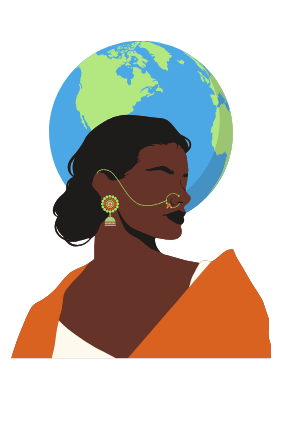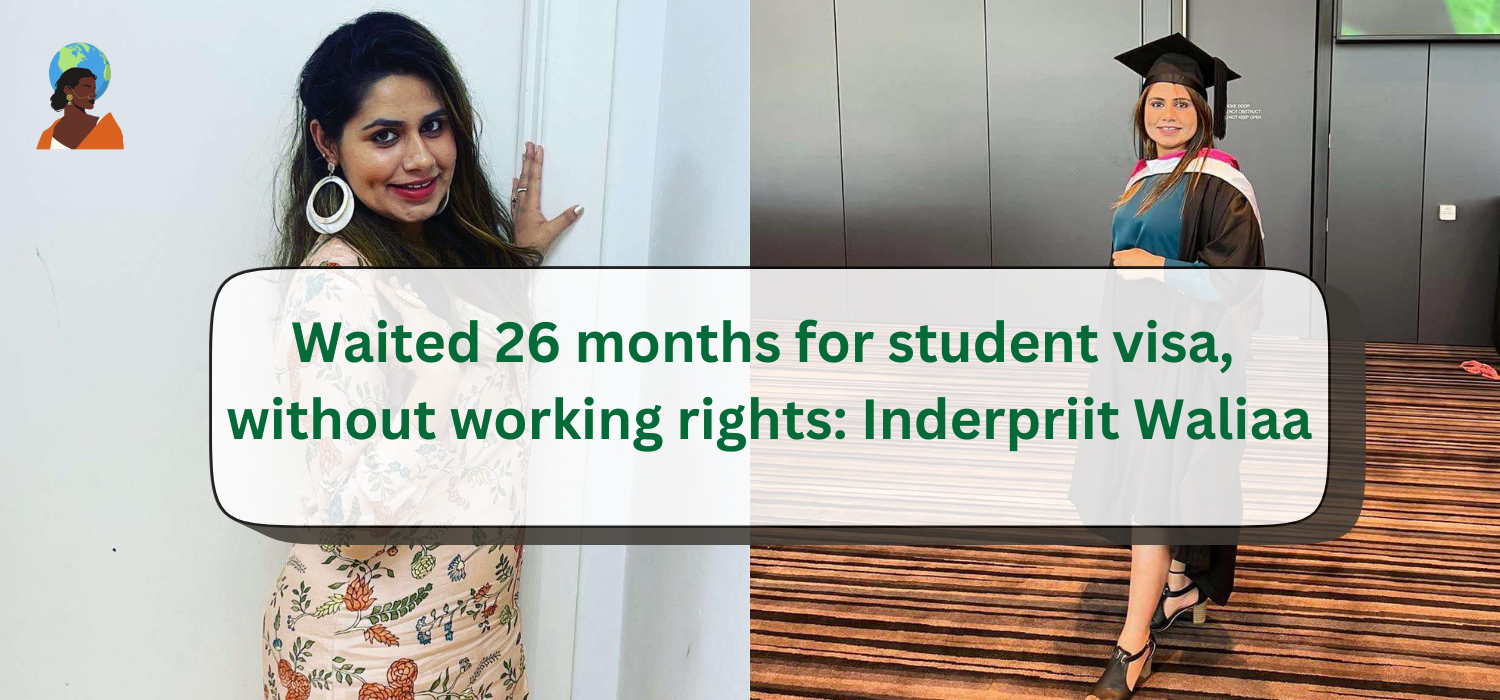Inderpriit Waliaa, an Indian technology professional, moved to Adelaide in Australia from Chandigarh in 2018 on a visitor visa and later applied for a student visa, which was pending for two years without any response. Despite being able to study, she couldn’t work due to visa restrictions.
After completing her master’s, Inderpriit faced challenges in finding a job due to cultural and skill mismatches.
In this conversation with Indian Women Abroad, she highlighted the pros and cons of living in Australia, including financial equality and the lack of societal support compared to India.
So Inderpriit, tell me about your journey.
I’ve been working in the technology field for the last 8-10 years. After getting married, my husband and I came to Australia on a visitor visa and applied for a student visa onshore. We’re now on a work visa but it was a long wait.
Despite suggestions from agents and other people, I didn’t change my field as some people normally do. In the time I studied my Masters, my student visa application remained pending which meant my husband and I were on a bridging visa and could not work at all. There was no response. No response at all for two years.
And your partner was also not able to work because you had a joint application? How did you support yourself during that time?
Yes. Luckily, he was here. He had been living in Australia since 2013 so we had some savings. So in those two years, we just used that, along with some money from India.
And then what happened later with your student visa?
I was in my last trimester, 24 months in and we were facing financial and mental hardship, so I requested my university to defer my remaining studies and they agreed. So my 24 months of studies turned into 27 months and I approximately received my student visa in the 26th month.
So then you went on your TR (temporary residency, post-study work Visa) and everything…
Yeah, with just one month left for my studies. And that was very stressful, especially because when you know you have been working and you have those skills, and you know that you cannot stay away from work. It’s hard to just stay and wait for two years
And after you finished your studies, was it easy for you to find a job in your field?
Yeah, in that case, I was a bit lucky, as I found a job after two months.
What’s your journey been like? I understand the very first challenge that you faced was with your visa itself…
Another step, or another stage is your job struggle. You know that you’re capable of, you know that you have the same experience as someone else but still, there’s some difference. For example, in Australia, recruiters are very particular with the JD (job description) and want the exact match.
But it’s not same thing with India. In India, we just apply. They take you, they give you the chance. You start learning, and you start applying your skills. You start learning those skills, and day by day, you improve. That’s how we gain experience.
Here, at the very first at the very first glance, they reject you. It’s highly unlikely your previous experience will 100% match with their JD.
Sometimes, culturally, you get rejected. They don’t say it, they don’t show it, but you can see or feel it sometimes. They can see you’re an Indian, or not just an Indian but from another culture and you get rejected on that basis. So it’s yeah, both.
That’s the downside of it. Do you feel like there’s some sort of positive to it as well? What’s your experience been like?
Everyone’s experience is different. In one of my jobs, my employer was not very willing to teach me new skills to help me grow or gain experience. But it could also be a person-to-person thing. Maybe he was that sort of personality who didn’t like teaching others. However, I didn’t face any sort of discrimination.
Soon after, the company closed and opened operations overseas. So I had to struggle to find another job. But the good thing was I now had Australian experience.
And also, as per the market requirements, skills were also somewhat getting matched. But still, I struggled. Networking and sharing my resume in my connections really helped.
The start was good for 70% of the job roles. But only in 20-30% of vacancies, I was shortlisted for a second round.
To be honest, it’s on your English, because your English is not per the Australian-level slang and all that stuff.
And speaking generally, what’s your experience been like as an Indian woman in Australia? What are the pros and cons? Not just professionally, but overall — personally, socially… I’m not sure if you have kids, just managing all of that.
Very good question.
The thing is, at both of my jobs — where I am now and where I was — I was the only female. So overall, it’s good socially, it’s good at the workplace and you face no issues.
These are the pros — that you always get respected, you always get valued, and hardly ever get judged or anything like that.
And cons, I would say, sometimes you internally feel low because it’s all male members around you. Sometimes it takes time to get comfortable with them. It’s a very minimal part but I always feel secure.
Sometimes you miss having people you could talk to, or confide in, and that can sometimes feel lonely.
I received 98 rejections, and got accepted for 2 jobs, and I am always very grateful for that.
But generally speaking, a different standard for beauty exists. I don’t know if other women feel that but that’s how it is. It’s in their genes and you cannot compete in terms of your colour and sometimes you feel like that in public places.
In very clear words, you are not white as per them. So that is sort of a stereotypical beauty bias, and sometimes you might feel like you get judged.
And personally, it’s just your husband and yourself…?
I have a daughter as well.
And as a working Indian woman abroad, is it easy or difficult?
To be honest, here the male, Indian mentality, is still the same. That’s in their blood. They didn’t get any message that we should share the responsibility.
For ages men always had to work outside, do their jobs to get money. And then the female job is, nowadays I would say doing everything perfectly. So mentally, I think that mindset is missing some women don’t get that help.
So definitely it’s not as same as in India where your kid grows up. You get help, if not from family, then you get help from outside. Here you’re alone because most men don’t help you in your motherhood, which could be due to different reasons like work timings, finances and other responsibilities.
Do you think there are also some positives compared to living in India?
Yeah, definitely. There are many positive scenarios. For example, at work there’s equality. Same timings, same finances. And if you are financially free, then you have independence in many other things as well.
There’s also emotional, mental and physical freedom that you don’t get in India, where you have to obey the rules of all family members and have to listen to them.
There are groups, communities and societies. You can join them, share your concerns, get counselling if you want or any type of coaching. There are definitely good points about Australia.
Lastly, do you have any life lessons or any advice for those reading this?
Definitely I do. I’ve learnt so much by moving here in terms of value, respect, patience and rights. Learning about equality, giving other people space and even general rules.
Something as simple as standing in a queue. You should be patient and wait for your number. And I’ve definitely learned valuing others. In India, we are quick to fight but here you learn how to communicate better, how your words will impact others. There’s also so much important put on mental health, and how our negativity can affect those around us.
So definitely, many things learned. If I’m not 100% different person, I’m at least a 70-80% different person from about 4-6 years ago, if that makes sense.
There’s so much to learn and so many opportunities for education are available. No matter what subject you want to learn, your taste, or your personal situation.


Leave a Reply